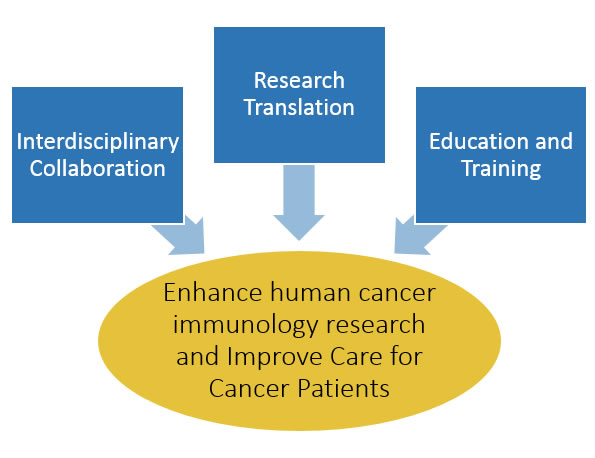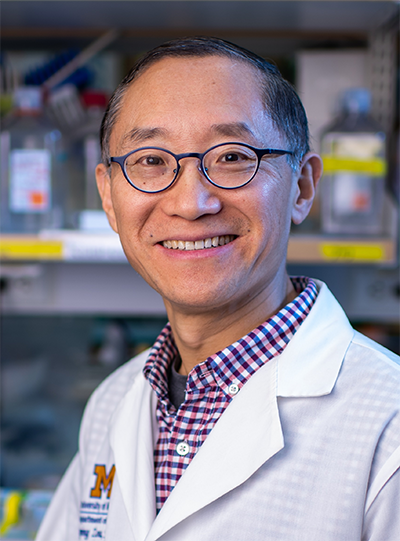Center of Excellence for Cancer Immunology and Immunotherapy
The Center of Excellence for Cancer Immunology and Immunotherapy (CECII) was founded in 2018 under the directorship of Dr. Weiping Zou.
The center is an interdisciplinary and multi-department collaborative effort to enforce human immunology research and accelerate translation of basic advances in cancer immunology into clinical therapies that improve care for cancer patients through interdisciplinary research.

Our Mission Statement
Scientists and physicians at the Center of Excellence for Cancer Immunology and Immunotherapy concentrate their efforts on the study of immune cell subsets and immune associated gene profiles in diseased models and cancer patients, and on understanding the immune system and the cancer inflammatory process and tumorigenesis -- and how these contribute to the origin and development of cancer, the therapeutic efficacy of immune checkpoint blockade, chemotherapy, and radiation therapy, and the guidance of novel combinatorial immunotherapeutic clinical trials. Our mission is to enforce human immunology research and accelerate translation of basic advances in cancer immunology into clinical therapies that improve care for cancer patients through interdisciplinary research.

About the Director
Weiping Zou, M.D., Ph.D.
Director, Center of Excellence for Cancer Immunology and Immunotherapy; Charles B. de Nancrede Professor of Surgery
Weiping Zou leads a multidisciplinary laboratory that investigates the human cancer microenvironment with the goal of understanding the nature of human tumor immune responses and developing mechanism-informed combination therapies for cancer. The laboratory has demonstrated that the interaction between tumor cells and the host immune system fosters tumor immunosuppressive networks and results in cancer progression and therapeutic resistance. Its studies of cancer infiltrating antigen presenting cells (APCs), regulatory T cells (Tregs), effector T cell subsets, and myeloid derived suppressor cells (MDSCs), and molecular signatures have elucidated major cancer immunosuppressive mechanisms and allowed for determination of clinically targeting immunosuppressive networks to effectively treat cancer patients. The laboratory’s work including the first demonstration of the expression, regulation, and function of PD-L1 (B7-H1) in the human cancer microenvironment and its early concept of combinatorial immunotherapeutic strategy has laid the scientific foundation for current cancer immunotherapy and provides rationales for novel combinations.
View the complete list of Dr. Zou's published works.
For Inquiries, please contact: Hilary Skilton: 734-615-5554 | [email protected]
